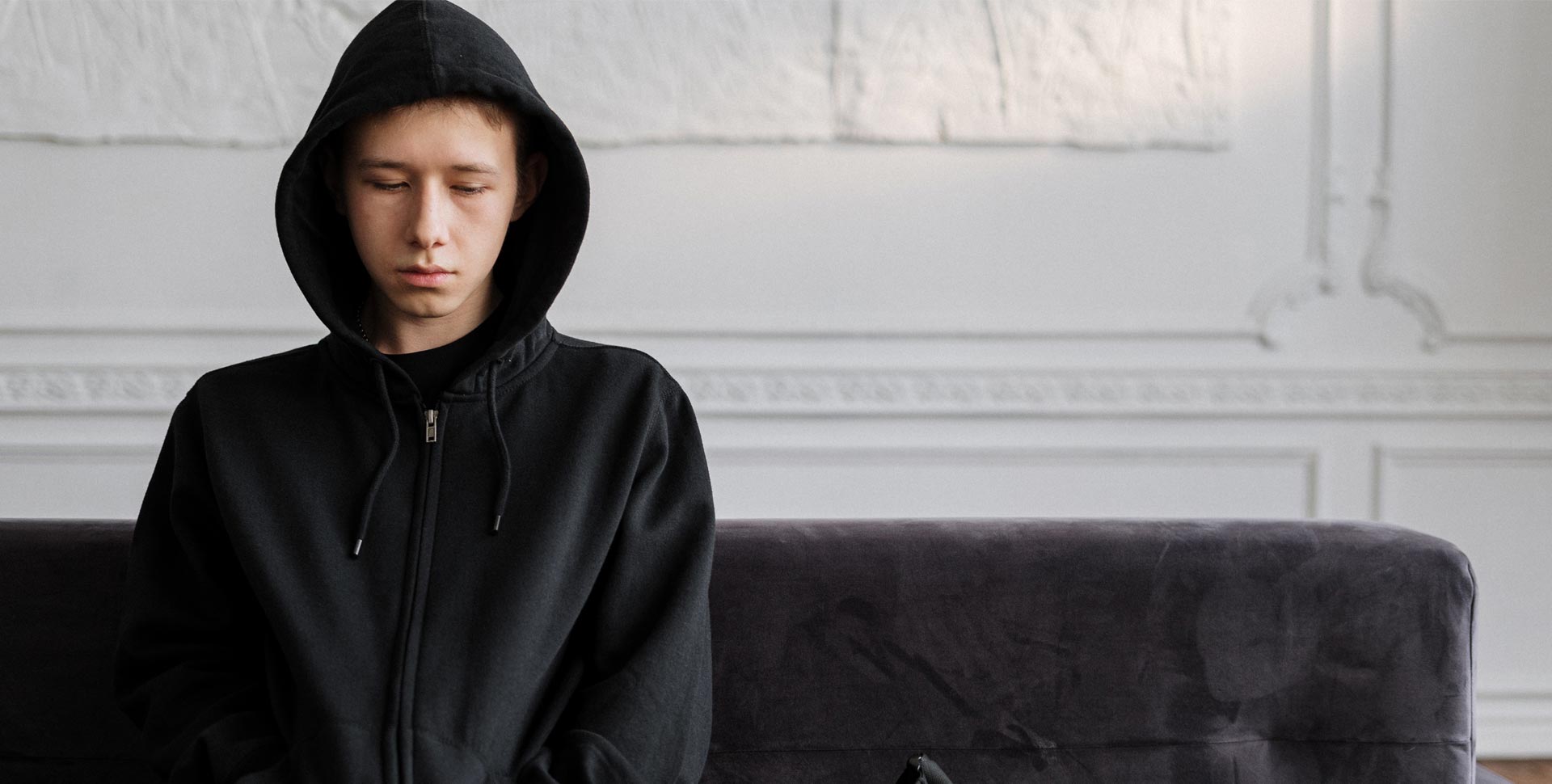As a survivor of domestic and family violence (DFV), our Aftercare and Student Support Manager, Kylie Sharp, understands what it’s like for young people to live through DFV. Here, Kylie shares her story and talks about Youth Off The Streets’ Power Within program, which is helping young people break the cycle of violence.
Can you share some of your story and what led you to working at Youth Off The Streets?
My mother was in an abusive relationship. For most of my childhood, there was hardly a night when she wasn’t assaulted. The effect on me was significant. By the age of 12, I would lash out at everyone I could and was deemed ‘uncontrollable’ by a counsellor. By 15, I was living on the streets because I thought it was the safest place to be.
Eventually, I married a man who was violent and spent years in an abusive relationship myself. I walked away when my second child was six weeks old. I put myself through education.
I was completing my Certificate IV in Youth Work when I did a placement at Dunlea, Youth Off The Streets’ drug and alcohol program. I was offered a position after three months and I’ve worked with Youth Off The Streets now for nearly 20 years.
What is the Power Within program?
The Power Within program is an early intervention program.
Years ago, I noticed through Aftercare – our program for keeping in touch with people over 21 who have left our main services – that we’d be called out in the middle of the night to help women escape domestic violence with their children. It was constant.
It wasn’t an effective response, because I was spending so much time pulling kids out of violent environments. I discovered the programs that already existed weren’t for our kids.
Our young people have lived through highly traumatic situations. So I educated myself around DFV, became a trainer for as many programs as possible, and slowly developed the Power Within program.
It’s Youth Off The Streets-specific and runs across our independent high schools.
What is involved in early intervention, and why is it important?
Early intervention helps prevent our young people from walking into dangerous situations later in life. We have a conversation about DFV with our young people, so they understand what it is.
There are many services out there for older women, or women with younger children. But there aren’t many for our teens, and our teens are living it. It’s normal for our young people to live in a chaotic family. Ninety-eight percent of the kids in our schools have experienced DFV. So until we have these conversations in my classes about what happens at home and the cycle of abuse, they won’t understand.
We identify DFV with them. We ask, ‘does this sound familiar?’. If it sounds familiar, we talk about it. We then give them coping mechanisms and tools for how to respond when things go awry.
What is the cycle of abuse?
It starts in what might be called the ‘honeymoon stage’ of a relationship. Then there’s a build-up stage of small cracks of aggression and violence. Domestic and family violence is all about gaining power over the survivor.
The next stage is the explosion. ‘Explosion’ can mean many things to our young people, depending on what kind of DFV they’re experiencing. It can be physical, emotional or psychological abuse.
Next is the remorse stage. The final stage is about pursuit. It’s the honeymoon stage all over again, showing the survivor how thoughtful and attractive the person using abuse can be.
Explaining the abuse cycle allows our young people to identify when explosions are going to hit. It means that they can usually get out of the situation or have a plan in place to escape.
Many people, however, won’t leave for years. It’s complex and difficult to escape because it can be the most dangerous time in a DFV relationship. This program isn’t about leaving domestic violence or fixing the problem, because unfortunately we can’t do that. It’s about giving young people knowledge.
We do what we can with our resources, but there needs to be more services and training for workers out there specifically to help young people.
What is the long-term impact of domestic and family violence on young people?
They experience a lifetime of issues. It could be eating disorders, depression, anxiety, PTSD, and repeating the cycle of abuse by returning to a destructive relationship. I did that myself; I walked straight back into it.
We may not see them leave permanently for a long time, but we give our young people a voice to talk about it and support them in the capacity we have. We’re starting the conversation.
The hardest thing is that DFV is a dirty topic to a DFV survivor. They blame themselves for what’s going on. They are ashamed of it. It’s easier to hide than it is to reach out. It’s about having the courage to seek help.
It’s important for people to be understanding. Many people ask, ‘why don’t you just leave?’. It’s not about understanding why they don’t leave; it’s about keeping them safe while they’re still in the situation and, hopefully, reaching out for help.
If you are experiencing abuse or violence, it’s not your fault. If you’re seeking help, the following services can support you. If your life is in danger, call 000.
Kids Helpline: 1800 55 1800
Lifeline: 13 11 14
National Sexual Assault, Family & Domestic Violence Counselling Line: 1800RESPECT (1800 737 732)

